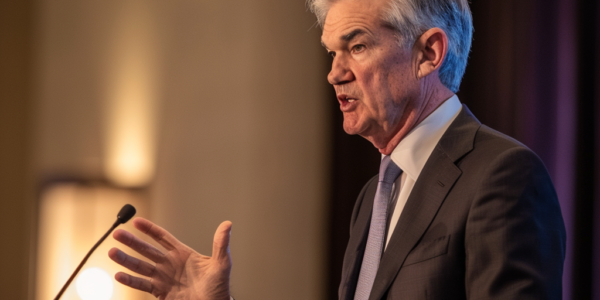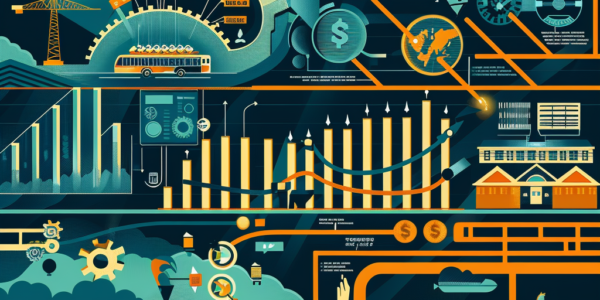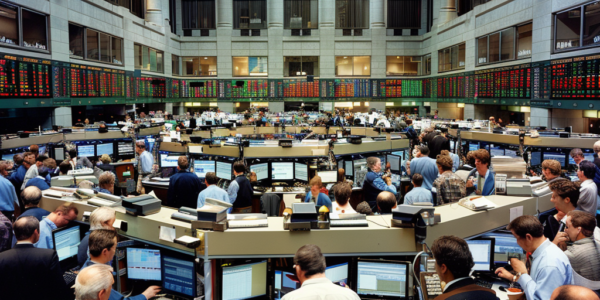Challenges and Solutions for Federal Reserve’s Forecasting Methods
The Federal Reserve is reevaluating its forecasting methods in light of economic surprises, with scenario analysis emerging as a promising alternative. By exploring a spectrum of risks and potential responses, central banks can enhance transparency and better prepare stakeholders for future policy actions amidst evolving economic dynamics.
Inflation remains stubbornly high, posing dilemma for the Fed
Consumer prices rose 3.5% in March, slightly higher than economists predicted, marking a slight pick-up from February. Inflation remains stubbornly high, posing a dilemma for the Federal Reserve as policymakers aim for a 2% target before considering interest rate cuts. Factors contributing to inflation include rising rents, car insurance costs, and increasing gas prices due to rallying oil prices.
Record High Corporate Profits Boost U.S. Economy
Corporate profits reached record highs in the fourth quarter of last year, contributing to the strength of the U.S. economy. Positive economic indicators, such as decreasing inflation and growing GDP, have translated into soaring profits for America’s biggest companies. While some criticize corporate profits as contributing to economic challenges, others argue that it played a crucial role in preventing massive layoffs and sustaining the economy.
US Fed should avoid climate change ‘mission creep’: Powell
Jerome Powell, head of the US central bank, warns that the Federal Reserve should avoid getting involved in politically-charged issues like climate change without Congressional approval in order to maintain public trust. Powell emphasized the importance of avoiding ‘mission creep’ and staying within the Fed’s mandate of setting monetary policy and banking regulation.
Federal Reserve Signals Potential Interest Rate Cuts in Response to Positive CPI Data
The Federal Reserve’s signal of potential interest rate cuts has generated excitement in the market, leading to significant gains in the S&P 500 and Nasdaq Composite Index. Investors are advised to reassess their strategies for portfolio protection and consider alternative approaches in the event of a different monetary policy trajectory.
Renowned Author Raises Concerns About Potential Unraveling of Bull Market
Renowned author Larry McDonald has raised concerns about the potential unraveling of the current bull market, particularly highlighting the impact of another spike in inflation on the U.S. economy. McDonald’s warnings come at a time when the stock market has been rallying, and the U.S. economy has displayed resilience, but he emphasized that this rally is delicately balanced on factors such as the U.S. Treasury market, the oil market, and the challenges faced by regional banks. Despite signs of persistent inflation and potential turmoil in the regional bank sector, the stock market rally has continued into the first quarter of 2024. McDonald’s insights and his latest book,
Crucial Week For Crypto Market: Major Events To Expect (March 18th-24th)
The upcoming week is crucial for the crypto market, with major events like Nvidia’s GTC Conference, the Fed Interest Rate Decision, Reddit’s IPO, and the SEC vs. Ripple Open Briefing set to impact the market. Traders should stay alert for potential opportunities and risks as altcoins continue to drive market trends.
Japan Abandons Negative Interest Rates
Japan’s decision to abandon negative interest rates is expected to have global implications, particularly on the strength of the yen and the country’s exports. Meanwhile, the Federal Reserve’s policy meeting and corporate developments from Unilever and Nvidia are also drawing investor attention. Wall Street bonuses have declined, stock futures are trending lower, and Bitcoin is extending its retreat, prompting investors to closely monitor unfolding events.
Short-maturity Treasuries Surge After Fed Confirms Interest-Rate Cuts
Short-maturity Treasuries surged after the Federal Reserve confirmed three interest-rate cuts this year, easing market concerns. Yields on two-year debt dropped, with traders now anticipating approximately 77 basis points of cuts this year. The Fed’s decision appeared more dovish than expected, leading to a rally in short-end bonds and higher inflation-expectations. The market’s reaction to the Fed’s decision will continue to shape investment strategies and market dynamics.
Fed Meeting: Dow Higher as Policymakers Still See 3 Rate Cuts in 2024
Today’s Federal Reserve meeting has kept investors on edge as policymakers continue to project three rate cuts in 2024. The ‘dot plot,’ a set of projections from individual Fed policy makers, is drawing significant attention as it reveals their expectations for the future. With the central bank likely to maintain current interest rates and Fed Chair Jerome Powell expected to keep his options open, all eyes are on the dot plot to gauge if policy makers still anticipate the fed-funds rate to decrease by 75 basis points by the end of the year, equivalent to three quarter-point cuts. The outcome of the Federal Reserve meeting is anticipated to have a significant impact on market movements and investor sentiment.










